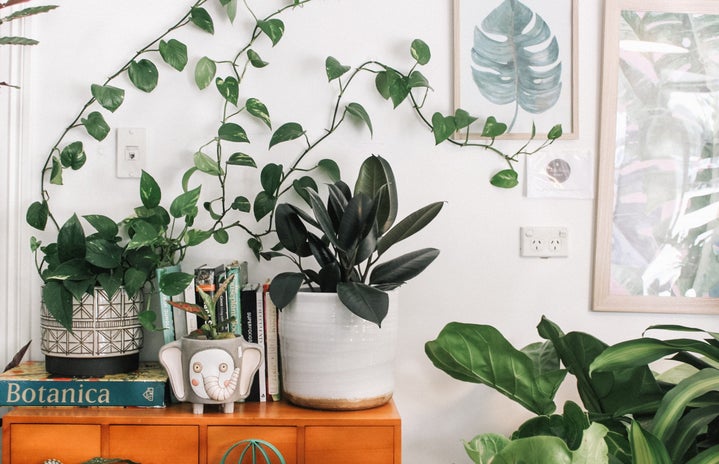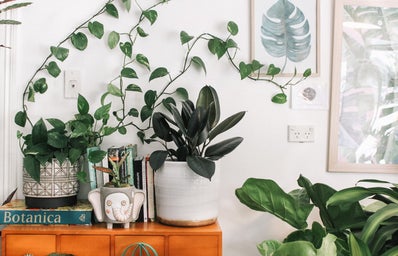Sunlight is filtered through thin screens and covers the tile floors with a mesh pattern. The air is clean and fresh in the dorm with a hint of rosemary. Why Rosemary? First off it’s my favorite herb not only because it smells so good but because it is also useful; Rosemary seedlings flourish on my dorm window sill. Due to the nature of Rosemary being drought resistant, pests resistant and can be harvested throughout the growing season, it makes a wonderful beginners–low maintenance–plant that enhances food taste.
Now imagine this: the sunlight is dripping from the sky down onto a small house on a side street in the woods, with chirps of chickens and robins. The gardens grow in parallel lines with care, and as the goats graze lazily the scene unfolds in peaceful harmony. This is the home of two gardeners that farm their entire land parcel for survival; they have been there for 12 years . Their vast experience is from trial and error passed down through generation and new reach that they have come up with themselves. Robbie and Deni Sisson live in a town in Middleborough Massachusetts on a miniature farm that they had created and worked to perfection through the decade. Both hail from families that lived through the Great Depression so growing food and preserving what they don’t eat is a given. Canning is a method of food preservation in which food is processed and sealed in an airtight container, in this way food can last for years if done right. Robbie and Deni are my Uncle and Aunt. I grew up watching them care for the land; I played in the chicken coop and played with the kids (baby goats).These two wonderful individuals run their own homestead where they grow everything they need to eat and take care of themselves through homeopathy . Here’s what I learned to help you grow your own little farm in a dorm room.
These two run a much bigger operation than what can be accomplished in a dorm but that doesn’t mean the tips won’t work, 12 plus year of experience of working one set of land means they know how to get the most of their soil. Robbie and Deni are big supports of self-sufficient and gardening is a good place for a beginning. The online article “Growing A Self Sufficient Garden – Plant A Self Sustaining Food Garden” written by Laura Miller helps emphasizes the idea that if a zombie apocalypse happens or trade between countries gets disturbed by a pandemic that goes global–COIVD 19– you can still get food. The article also gives some quick tips that share the same sentiment as to help beginner gardeners or farmers. To start having mineral rich soil is important,“ …fresh soil with a mix of manure is the basic level but if possible try to compost coffee grounds and other plant matter, ” Robbie said. You will be replenishing the nutrients into the soil that helps the plants grow,”
Just be careful in a dorm, smaller is better in this case, the smell may not make your roommates happy.
Growing something in the dorms requires adroitness. There is only so much space and resources this plant can get so when picking your new plant friend, choose wisely. A pot that is ceramic might be a good starting choice. These pots are porous, they help with air circulation and keeping moisture in. Ceramic pots are also durable, they resist cracking and long-term weather damage, if you do end up putting your plant outside at some point. Because these pots are ceramic they are great at insulating plant roots; protection against temperature fluctuations is good considering that dorms may not always be a one constant temperature.
If you plan to grow something that you can eat later, choose something that you might be able to plant in the winter. The cold can be brutal for most things but if you’re willing to take a gamble on the plants’ survival during the briskness of the dorm temperature try garlic. “We plant garlic just before the ground freezes, it sits and gets cozy over the winter…then it springs up in the late spring/summer. Planting before the ground freezes allows the cloves to grow roots before winter hits, you plant them usually six inches away from each other, in a sunny spot and then you just wait,”said Robbie.
Garlic is useful in cooking and can be very good for your immune system as any homeopathy would tell you. It also helps that Deni is a trained homeopath that has several certificates to authenticate her passions of home-homeopathy, clinical-homeopathy. She trained with Doctor Mr. Robin Murphy and received her clinical-homeopathy; this specific certificate is through the lotus wellness cottage company. Where they help provide wellness techniques that are nature based. Not only does garlic make for good around the house food but it’s resistance to the cold may be the “Saving Grace” in a dorm room, heat can be very sporadic. If you’re gone throughout the winter months for winter break, trust that your garlic plant will still be there when you come back. That is if you don’t bring your little friend home. Garlic’s planting season also depends on where it’s being planted, if there’s very harsh winters maybe plant a little bit beforehand, if the winters are more mild in an area maybe some procrastination can happen.
If your harvest was successful, the fun part is now finding out what to do with your harvest. Being this far in the journey of gardening, learning how to can or preserve might be next on the list. Robbie and Deni are huge gardeners and they have a lot of produce that they have to preserve for the winter.
“Keep your produce separated to make sure they have a chance to dry out themselves–without growing mold–that means don’t let them touch,” said Deni. Hanging bulb bunches(aka groups of garlic tied together) for a few months in a dry, dark place can help dry them out so they’ll last longer. The garlic will still be fresh, it’ll just be preserved now.” Deni also said “Cleaning the cloves of garlic and putting them in a jar of honey will also preserve and ameliate up the harsh taste”.
Deni then went on to list 100 recipes for garlic in about 10 seconds, so the possibilities for you to use garlic are endless. Homemade meals that range from skillet potatoes with red pepper and whole garlic cloves to something as simple as pasta with meatballs and a veggie mixed in covered garlic sauce. My personal favorite is roasted potatoes with lemon and garlic which is a dish that consists of olive oil, lemon garlic and potatoes and whatever extra seasonings you’d like to put into it.
Robbie and Deni work as a team, to cover not only growing, preserving, and cooking up all their wonderful fresh produce, as an early 20-year-old that can be quite the endeavor to conquer by oneself. Just remember starting small is the principle in learning, the steps will ease up with time and practice. The easy part lasts longer than the difficult, and it starts to be difficult. Once you’re past the few weeks of incubation of the seed and the beginnings of the growing of the seedlings, it becomes a lot more fun to track both your plants and your own progress.
“Learning to grow food is essential, not only does it taste better but it feels better after you eat it… you know what went into putting that food on your plate because you grew it. Not to mention the cost is much better,” said Robbie as he stood over a patch of peppers. He had planted about 100 of six different varieties. All of that work is to eat well and help others eat well. Being in college means that you have to eat some gross food sometimes, but learning to grow your own food might save you a stomach ache or two. Maybe it’s time for us all to consider a small potted plant on our window sills.

